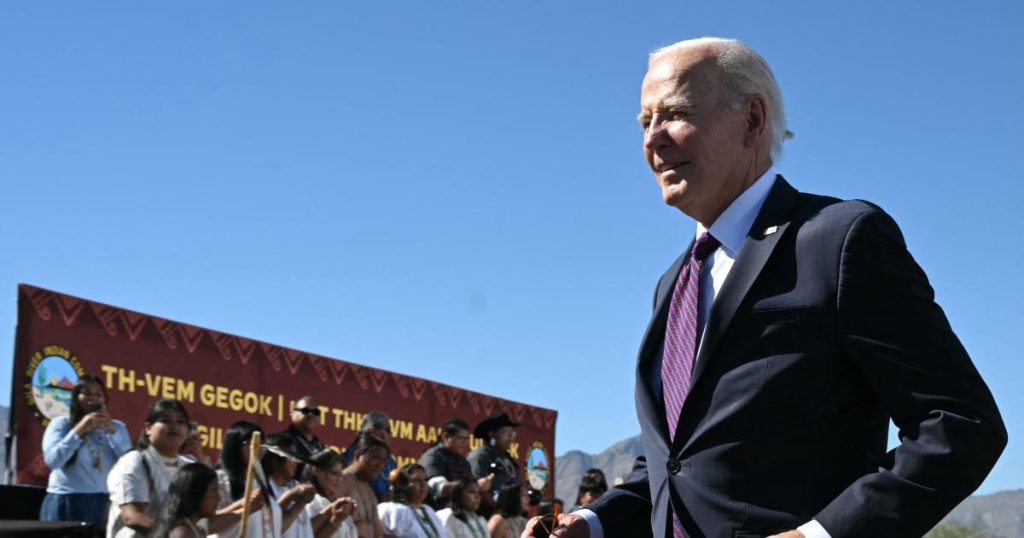President Biden issued a formal presidential apology to Native American communities for the atrocities committed against Indigenous children and their families during a 150-year era of forced federal Indian boarding schools. The president chose to speak at the Gila River Indian Community in Arizona, though he apologized to all tribal nations for their generations of suffering. From 1819 through the 1970s, the federal government and religious institutions established boarding schools to assimilate Alaska Native, American Indian, and Native Hawaiian children into White American culture by forcibly removing them from their families, communities, and belief systems. President Biden called the practice “one of the most horrific chapters in American history” and a “sin on our soul,” holding a moment of silence for the lives lost.
The president highlighted the anguish experienced by Native children who were taken from their families and communities, stripped of their identities, and subjected to emotional, physical, and sexual abuse at the boarding schools. Even after the Civil Rights Act was passed in 1964, the atrocities continued. The history is personal for Interior Secretary Deb Haaland, the first-ever Native American Cabinet secretary, whose grandparents were taken from their communities and placed in Catholic boarding schools. Haaland conducted the first federal investigation into the federal Indian boarding school era, uncovering more than 500 deaths and identifying 53 burial sites at school locations nationwide.
The Interior Department’s investigation found that when children failed to meet standards or broke rules, they were subjected to corporal punishment, including solitary confinement, flogging, withholding food, whipping, slapping, and cuffing. The federal government often contracted with religious institutions to run the schools in an attempt to assimilate Native children into White American culture, though the effort ultimately failed. Haaland stated that the federal government failed to annihilate Native languages, traditions, and life ways, as Native communities persevered. She emphasized that the terrible chapter of the boarding schools was hidden from history books for decades, but the administration’s work seeks to ensure that the injustices are never forgotten.
President Biden described his formal apology as one of the most consequential acts of his presidency, emphasizing the honor he felt in addressing the painful history of the boarding schools. He stated that the federal government has never formally apologized for the atrocities committed, noting that the apology was long overdue. The president highlighted the suffering endured by generations of Native children who were taken from their families, silenced, and stripped of their cultural identities at the boarding schools. Interior Secretary Deb Haaland shared her personal connection to the boarding school era and acknowledged the trauma that persists within Indigenous communities due to the policies and institutions that were responsible for the abuses.
In his apology, President Biden recognized the immense pain and suffering inflicted on Indigenous children at the boarding schools, using the platform to acknowledge and take responsibility for the historical injustices committed by the federal government and religious institutions. The president held a moment of silence for the lives lost and expressed a deep sense of regret for the horrific chapter in American history. He described the boarding schools as a sin on the nation’s soul and vowed to ensure that the stories of the survivors and their families are never forgotten. The formal apology represents a significant step towards reconciliation between the federal government and Native American communities, acknowledging the trauma and injustices that have been passed down through generations.


